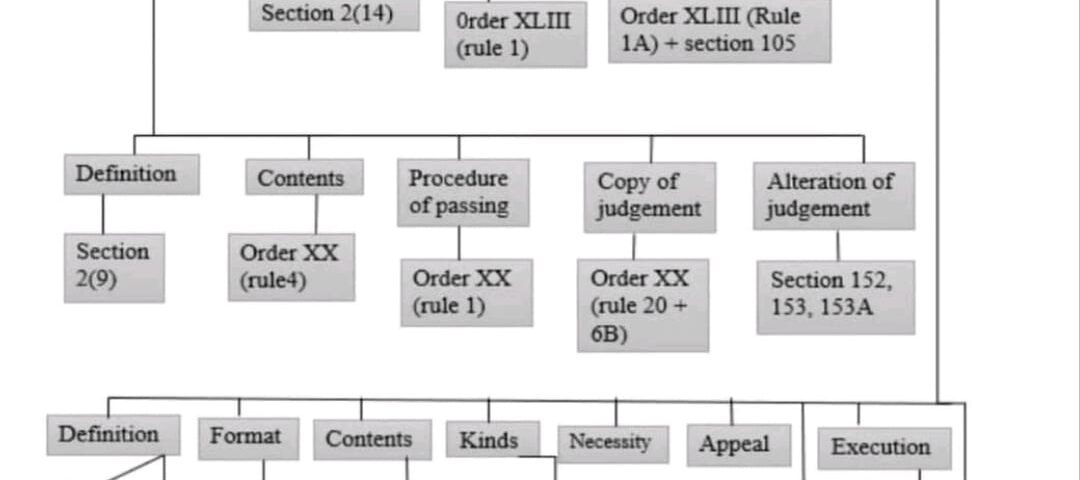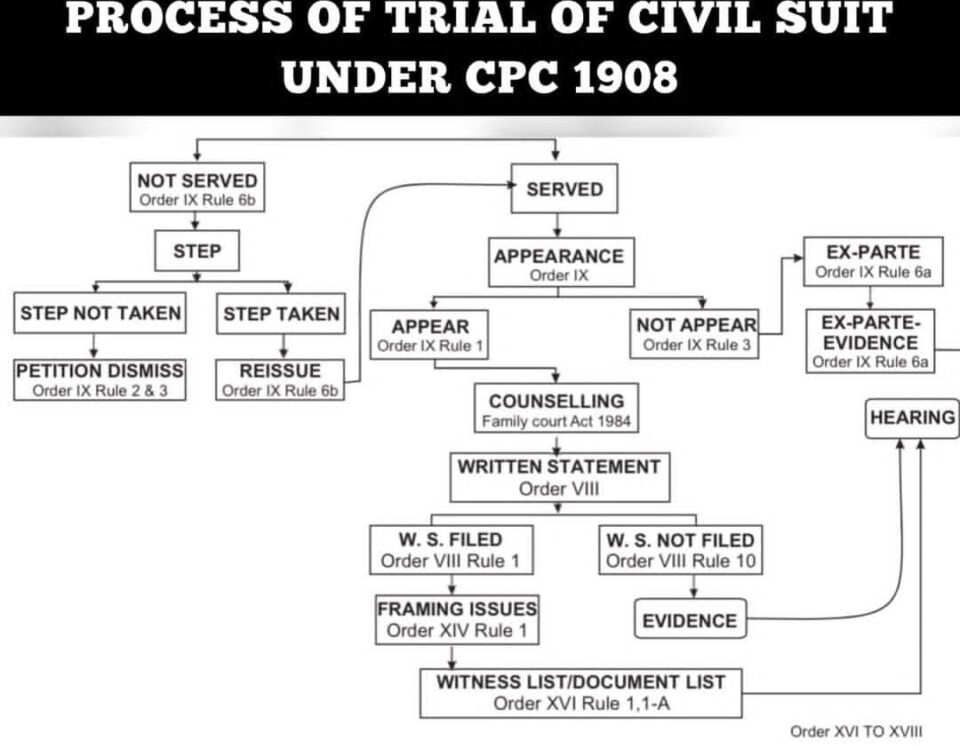- Top-rated Best Lawyer in Ghaziabad
- +91 9616166166
- [email protected]

Types of Family Law in India: A Comprehensive Overview
May 9, 2025
Understanding Section 125 of the CrPC: A Comprehensive Guide
May 22, 2025In civil litigation, understanding the concepts of decree, judgment, and order is crucial. These legal terms, governed by the Code of Civil Procedure, 1908 (CPC), define the backbone of court decisions and their enforceability.
This blog provides a clear breakdown of the legal distinctions and interrelations between these three terms, referencing Section 2(2), 2(9), 2(14) of the CPC, and key orders like Order XX, Order XXI, Order XLIII.
What is a Judgment? – [Section 2(9) CPC]
A judgment is the statement given by a judge on the grounds of a decree or order.
Key References:- Definition: Section 2(9)
- Contents: Order XX Rule 4
- Procedure of Passing: Order XX Rule 1
- Copy & Alteration: Order XX Rule 20 & 6B, Section 152–153A
What is a Decree? – [Section 2(2) CPC]
A decree is the formal expression of adjudication, conclusively determining the rights of the parties in the case.
Key References:- Definition: Section 2(2)
- Format: Appendix D
- Kinds: Preliminary, Final, Partly Preliminary & Final
- Deemed Decrees: Order VII Rule 11, Section 144
- Execution: Order XXI
What is an Order? – [Section 2(14) CPC]
An order is any decision of a civil court which is not a decree.
Key References:- Definition: Section 2(14)
- Appeal: Order XLIII Rule 1
- Execution: Order XLIII Rule 1A + Section 105
Differences at a Glance
| Criteria | Judgment | Decree | Order |
|---|---|---|---|
| Definition | Statement by judge | Formal adjudication | Every decision not a decree |
| Section | 2(9) | 2(2) | 2(14) |
| Format | Not prescribed | Appendix D | No format prescribed |
| Appeal | After decree is passed | Appealable (mostly) | Some are appealable (Order XLIII) |
| Execution | Not executable | Executable (Order XXI) | May be executed in some cases |
Why is this Important?
Understanding these distinctions helps:
- Law students prepare better for procedural law.
- Clients understand the stage of their case.
- Lawyers structure appeals and enforcement actions effectively.
Expert Insight from Ghaziabad’s Legal Experts
At Lawyer in Ghaziabad, we specialize in civil litigation, execution petitions, and appeals. Whether you're dealing with a preliminary decree or seeking to appeal an interlocutory order, our team is here to help.
Get Legal Assistance Today
- Lawyering Ghaziabad
- Call/WhatsApp: [+91 9616166166]
- Visit: www.lawyeringhaziabad.com
- Email: [[email protected]]


